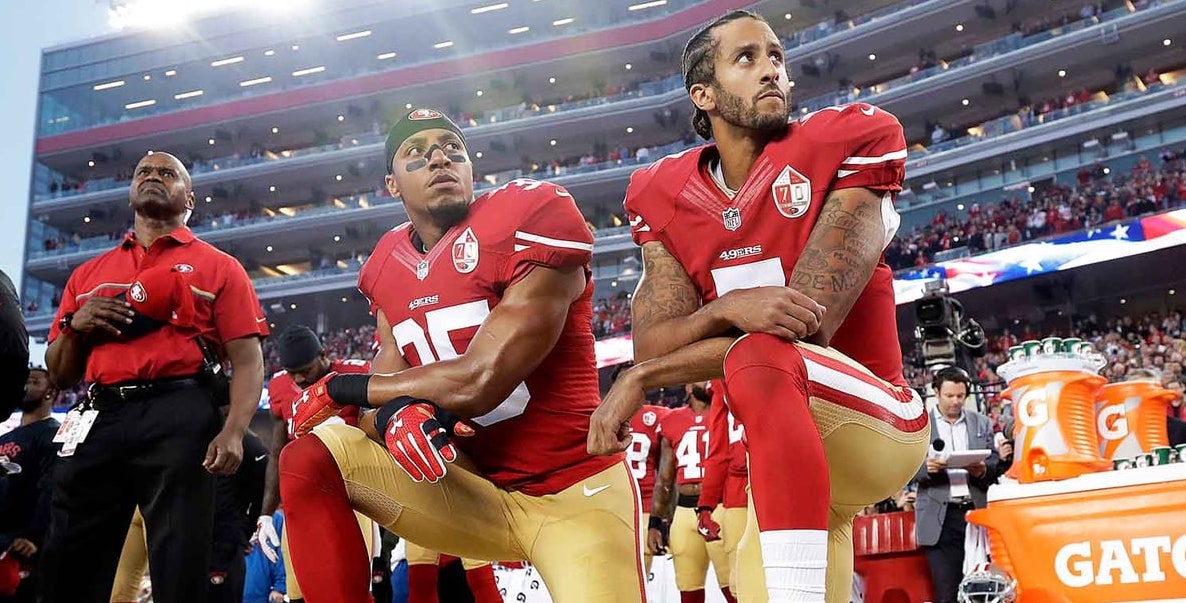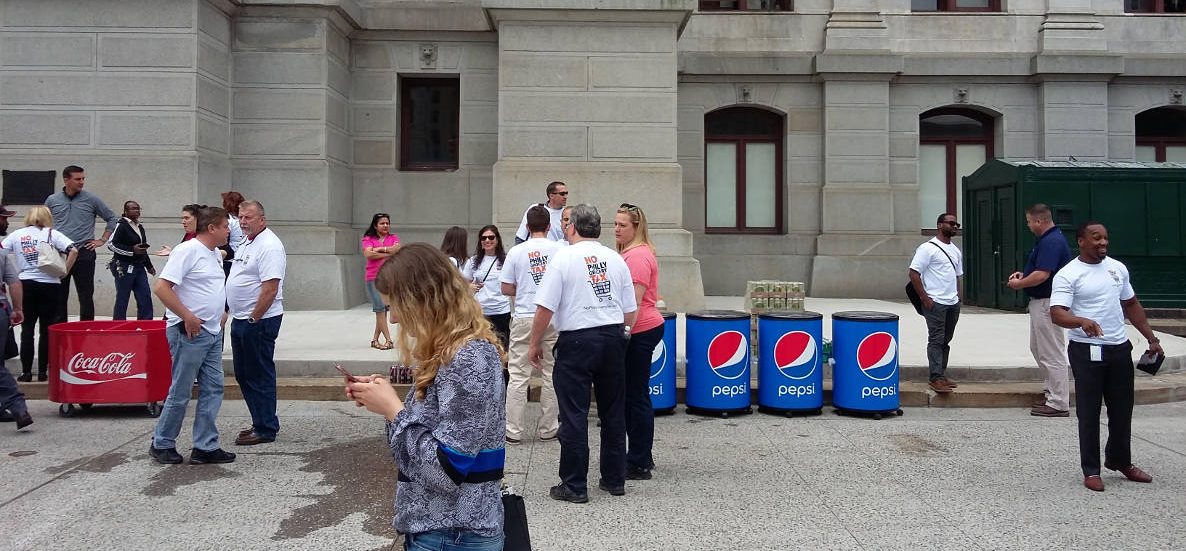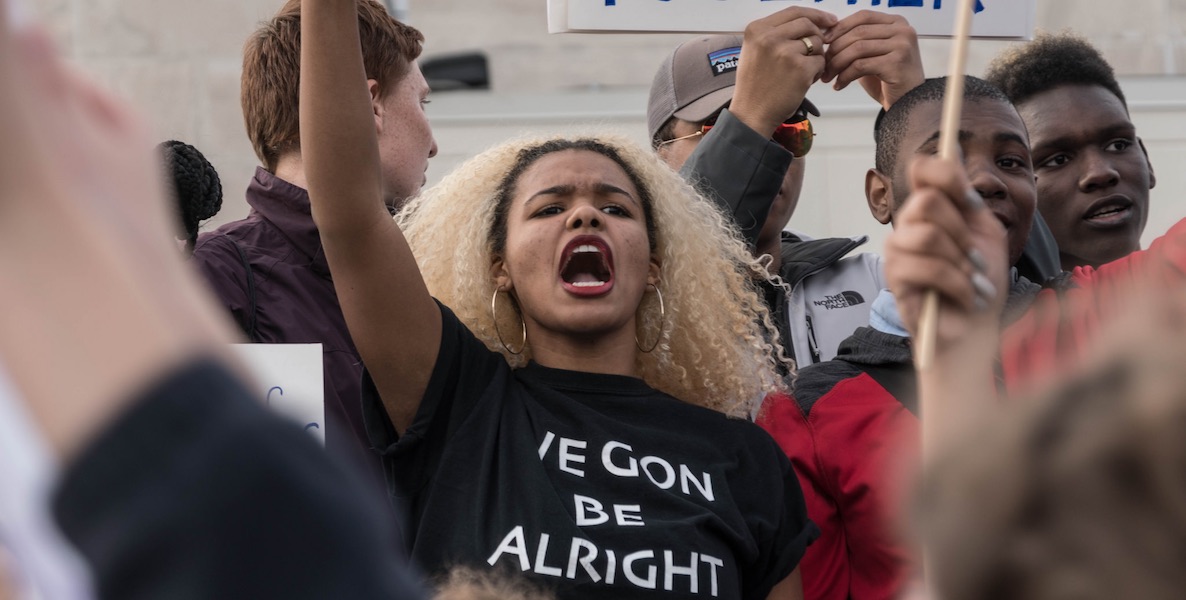This week, with the Graham-Cassidy health care “reform” crashing and burning before him, our Distractor-in-Chief did what he does: He changed the subject, diverting our attention from his inability to get anything done that he campaigned on. (Health care, tax reform, infrastructure…are you tired of winning yet?) And he did so, in keeping with his brand, in a particularly divisive way, calling into question the patriotism of predominantly African American football players for protesting police brutality by refusing to stand for the National Anthem.
Be Part of the Solution
Become a Citizen member.The punditocracy rose up over the weekend to denounce Trump, relegating to afterthought the collapse of the latest craven health care bill, and the WWF-like sniping between the leader of the free world and North Korea, and the post-hurricane devastation in Puerto Rico. Conservative commentator John Podhoretz had it exactly right when, in response to Trump, he tweeted: “Trump is Pavlov. We are the dogs.”
At the risk of taking the bait, here are some random thoughts prompted by this latest Outrage Du Jour:
Where Are You, Mahmoud Abdul-Rauf? Colin Kaepernick and others—like our own Malcolm Jenkins—aren’t the first to use the National Anthem as a form of socio-political protest. In 1996, NBA star Mahmoud Abdul-Rauf was fined and suspended by the NBA for not standing for the anthem, because he viewed the flag as a symbol for oppression and racism. “I don’t criticize those who stand, so don’t criticize me for sitting,” he said.
The NBA reached an absurd compromise with Abdul-Rauf: He’d stand during the anthem, but, eyes closed and head bowed, he’d pray. The story receded from the front pages, but Abdul-Rauf—who had mad game, a precursor to Steph Curry—was eventually driven out of the league, treated not unlike Kaepernick today. In both cases, otherwise model citizens expressed unpopular opinions and seemed to be blackballed—there’s no questioning the athletic talents of either—while watching other athletes who dabbled in performance enhancing drug taking, sexual assault, or animal cruelty receive second or third chances.
Our outrage—righteous though it is—plays right into Trump’s divide and conquer politics, and obscures the fact Trump is desperate to keep from us, because it is so damaging to his brand: He has no idea how to actually get stuff done.
Sport Is Political. Countless pundits this week have bemoaned the encroachment of politics into sports. Well, let’s get contextual. We tend to forget that, historically, sports has often been a driving force for social change. The civil rights movement, after all, actually began seven years before Brown v. Board of Ed, when Jackie Robinson crossed the color line. And it was Muhammad Ali’s pithy critique of the Vietnam War—“I ain’t got no quarrel with them Vietcong.”—that helped fuel an anti-war movement. But after the activism of the 1960s, most sports stars—owing to the millions in endorsement deals thrown their way in the 1990s—ceased to speak out, culminating in Michael Jordan’s silence when a credible black candidate, Harvey Gantt, challenged racist Senator Jesse Helms in a North Carolina U.S. Senate race. “Republicans buy sneakers, too,” Jordan said when asked why he hadn’t endorsed Gantt in his home state election.
About how we protestRead More
Why Do We Sing The National Anthem, Anyway? What was clear during Abdul-Rauf’s 15 minutes of infamy is still true today: Standing and singing a song is a pretty dumb way to gauge patriotism. After all, when we attend a play or a movie, we don’t all begin by jumping up, hands to our hearts, and break into song together. So why do we do it at ballgames? It started when, in 1916, President Woodrow Wilson (whose come in for some criticism of late owing to his own racist past), ordered that the song be played at military ceremonies. During the World Series of 1918, a band played the song as part of the seventh inning stretch entertainment—and the crowd, already on its feet, sang along. A tradition was born.
That it has morphed into a litmus test on one’s love for country is absurd. Think about what we just witnessed: A President who has proclaimed Senator John McCain unheroic—the same John McCain who spent five years in a prisoner of war camp—and who himself sought and received a military deferment during the Vietnam war because of bone spurs in his heels, has the chutzpah to lambaste the patriotism of others based upon whether they sing a song or not. If America were a sitcom, this latest plot twist would come to be thought of as when we’d “jumped the shark.”
We need a tutorial on our own history. I’d always been vaguely aware that Francis Scott Key, the composer of the Star Bangled Banner, had owned slaves. But last year, Penn alum John Legend linked in a tweet to a story detailing the song’s original racism. Apparently, there’s a third verse that we don’t sing (“No refuge could save the hireling and slave / From the terror of flight or the gloom of the grave”) that celebrates the killing of slaves who’d freed themselves and joined the British cause in the War of 1812. Now, you might dismiss this context as old history that is no longer relevant in 2017; but if we’re all going to genuflect en masse before sporting events and sing this song, shouldn’t we know the full story of the song’s origins?
If America were a sitcom, this latest plot twist would come to be thought of as when we’d “jumped the shark.”
Legend argues that we should make “America The Beautiful” our national anthem. Or, how about this, which Trump would just love: Let’s replace Key’s divisive lyrics with “Lift Every Voice And Sing,” commonly referred to as the Black National Anthem, which, both lyrically and emotionally, is just a much better song.
Put your money where your pledge isDo Something
We need a higher bar for judging patriotism. Kneeling through the singing of a song, as well as sitting on the couch and questioning the patriotism of those who kneel, is relatively easy. True citizenship, however, is not a spectator sport. It requires work. How many of those protesting and how many of those self-righteously calling the protestors’ actions and motives into question have actually voted? How many not only know the names of their elected representatives, but have let said representatives know what they think about the pressing matters of the day? How many give money or time to advance the cause of racial and social justice in their own communities?
Trump argues that those refusing to stand for the song are not supporting the men and women of America’s fighting forces. But aren’t there better, more constructive ways to support the troops? For example, if all those now complaining about Kaepernick and the protesters who have followed his lead had written to their elected officials during the Iraq War to tell policymakers that sending our troops off to battle with insufficient body armor was unacceptable, actual soldiers’ lives might have been saved. Wouldn’t that have been more patriotic?
Besides, isn’t there a longstanding tradition of dissent as patriotism? Like, wasn’t the Boston Tea Party a patriotic act? That’s what former NFL quarterback Kurt Warner was getting at this week: “When I heard [the President’s] comments, I was so disappointed because I believe they are completely contradictory to what the flag represents…This is about standing up for ideals of the flag…Is it more honorable to stand and face the flag when you don’t represent the ideals of what the flag represents, or is it more honorable to kneel in protest in an attempt to try and accomplish what the flag was designed to represent?”
How about this, which Trump would just love: Let’s replace Key’s divisive lyrics with “Lift Every Voice And Sing,” commonly referred to as the Black National Anthem, which, both lyrically and emotionally, is just a much better song.
Finally, let’s quickly move on from this debate, lest we play the role of those Pavlovian dogs once again. In his American Prospect interview, Steve Bannon, Trump’s once and future brain, chillingly said, “The Democrats, the longer they talk about identity politics, I got ‘em. I want them to talk about racism every day.” In other words, our outrage—righteous though it is—plays right into Trump’s divide and conquer politics, and obscures the fact Trump is desperate to keep from us, because it is so damaging to his brand: He has no idea how to actually get stuff done







